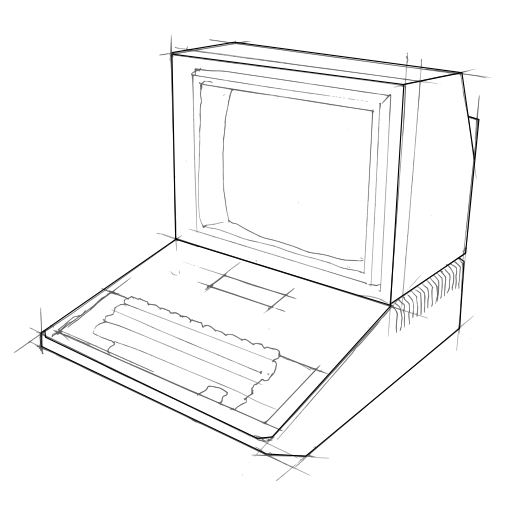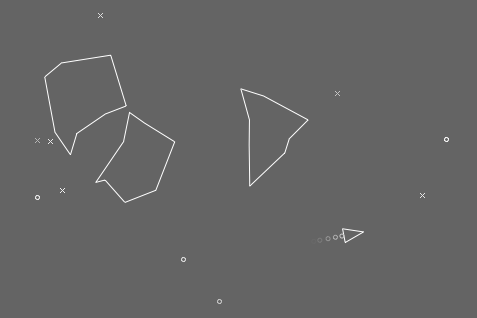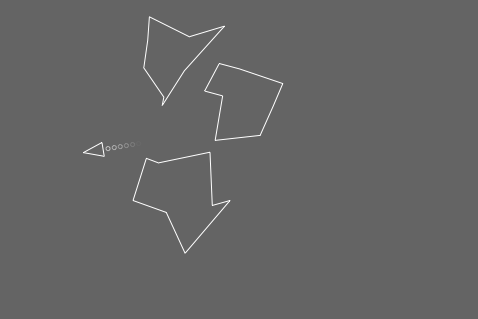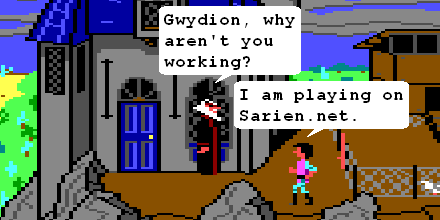I did a little bit more work on the Javascript games library that I've been working on recently, adding rudimentary collision detection. It needs quite a bit more work, but I'm getting there slowly. That allowed me to put shooting into the little asteroids-like game that I'm using to test the framework. Click on the image to play.
I've also been doing a bit of work on the documentation of jsGameSoup so that other people can start using it more effectively. I got jsDoc running, producing documentation from the comments in the code. I need to get that documentation online and make a nice little mini-site like the great flixel one at some stage. I've also started documenting reasons why a game developer might like to use jsGameSoup:
- If you make a game for the web, it will run everywhere, for everyone. Desktops, netbooks, games consoles, hand-held devices "...giving developers the largest user base of any platform."
- jsGameSoup runs on the major current generation browser engines, including Internet Explorer, Firefox (gecko), and Safari (WebKit).
- jsGameSoup relies on open standards and protocols, which means it runs in the lowest-common-demoninator places where proprietary technologies won't run.
- jsGameSoup is Free Software, which means that the users and developers (that's you) will have control over its future, unlike proprietary technologies such as Flash and Silverlight.
Here are some of the things that are not yet supported by jsGameSoup, but which I am looking to support soon:
- Documentation - I've started on this, but I need to get it online with lots of demos and examples.
- Bitmap graphics - The canvas element is the basis of jsGameSoup and it supports bitmap graphics, but I haven't tested how it performs yet on all of the browsers.
- Collision detection - I have implemented very naive bruteforce collision detection. I need to implement the more complex collision detection system I have in mind in order for it to scale up to games with more entities.
- Sprite/Animation - I'd like to add vector and bitmap sprite management and animation to jsGameSoup to make it easier to draw and manage on-screen entities.
- Networking - I will probably make a separate Javascript library with a Python based server for plugging into jsGamesoup to write multiplayer games with it. I have written a couple of Python based game/web servers before, so I have some idea of a good architecture for that.
- Inheritance - I am thinking about adding John Resig's Simple Javascript Inheritance to the library to make it easier to code in an object oriented style. Maybe this is best left as an optional plugin though.
Taking all that into account, you can see from the AsteroidsTNG demo that you can make basic 2d games using jsGameSoup already, and they will run in the major browsers.
jsGameSoup is LGPLv3 and AsteroidsTNG is GPLv3. Here is their source code:
or bazaar:
bzr branch http://mccormick.cx/dev/jsgamesoup/
or bazaar:
bzr branch http://mccormick.cx/dev/AsteroidsTNG/



